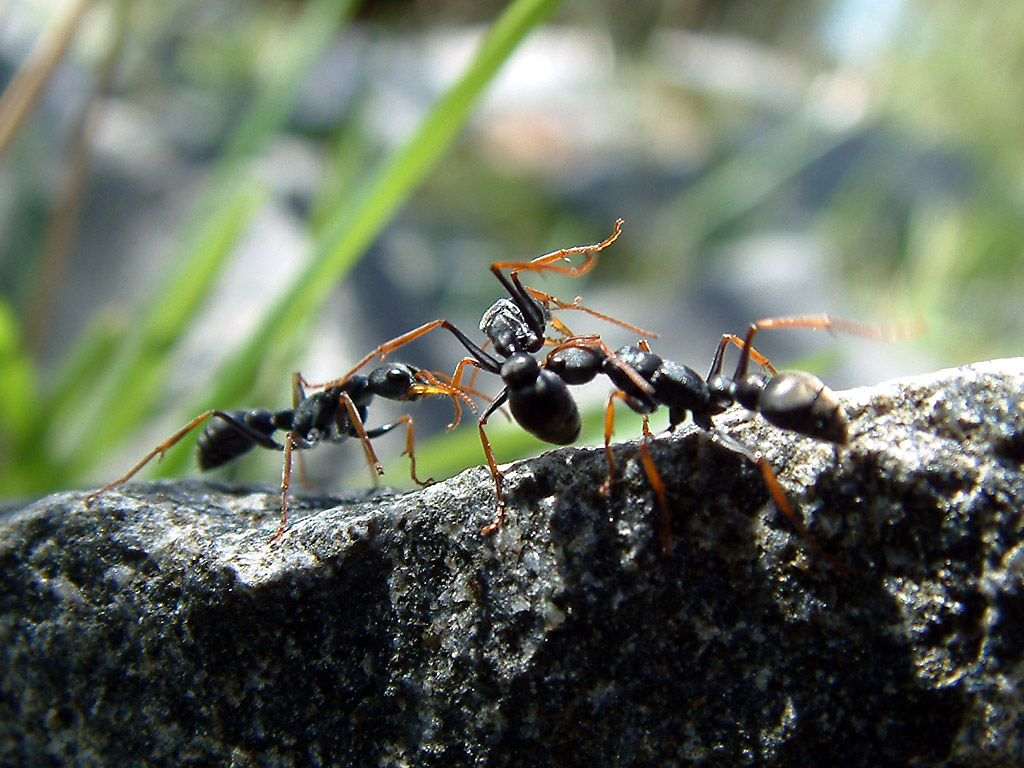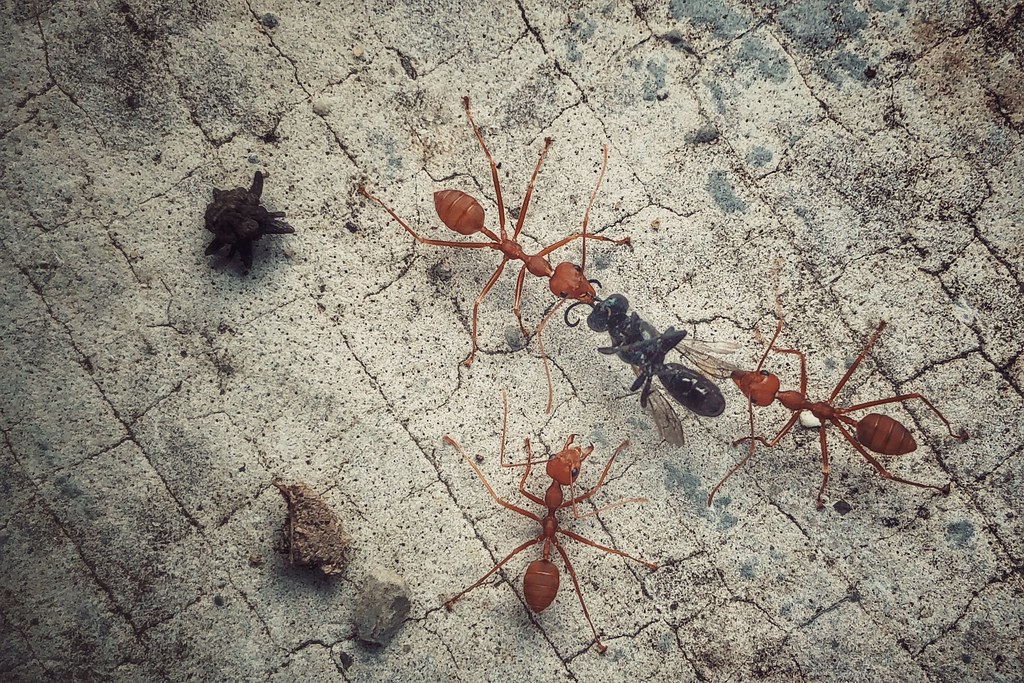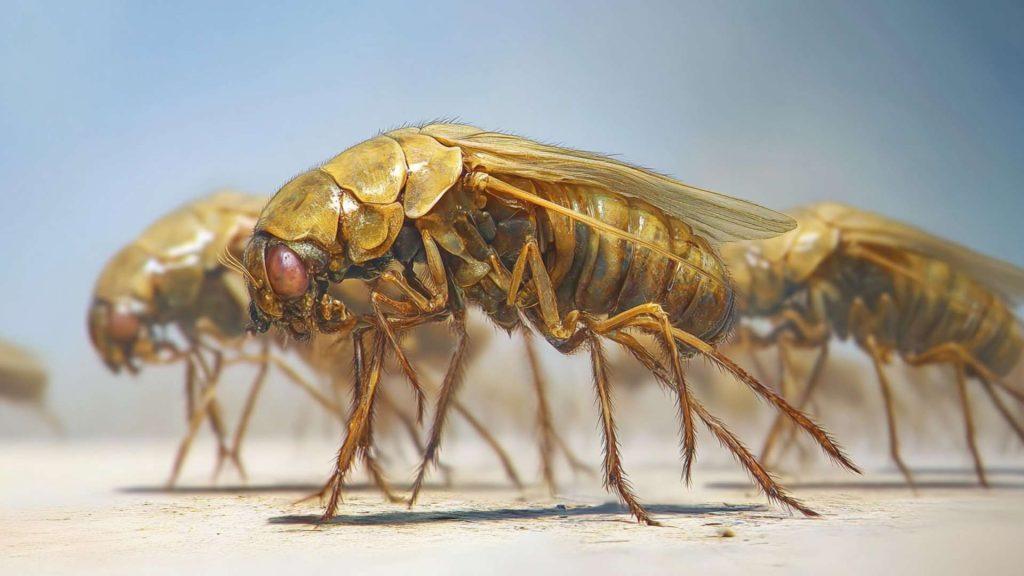Ants are tiny pests with complex social structures. Despite their cooperative nature, ants are often observed fighting with each other. These conflicts can occur for various reasons, from territorial disputes to mating rights. Understanding why ants fight helps us understand their behavior and social dynamics.
 Ants also use chemical signals called pheromones to mark their territory. If ants from a neighboring colony cross these chemical boundaries, the resident ants interpret it as an invasion, prompting aggressive behavior. This territorial aggression is a key reason why ant fights occur.
Ants also use chemical signals called pheromones to mark their territory. If ants from a neighboring colony cross these chemical boundaries, the resident ants interpret it as an invasion, prompting aggressive behavior. This territorial aggression is a key reason why ant fights occur.
 However, other ant species may band together to defend themselves against fire ants. These collective defense strategies can lead to large-scale battles, with ants fighting to protect their colonies from the threat of the more aggressive fire ants.
However, other ant species may band together to defend themselves against fire ants. These collective defense strategies can lead to large-scale battles, with ants fighting to protect their colonies from the threat of the more aggressive fire ants.
The Territorial Nature of Ants
Ants are highly territorial insects. Each colony operates as a self-contained unit with its own queen, workers, and resources. When two ant colonies come into close contact, especially if their territories overlap, conflict is almost inevitable. The ants will fight to protect their resources, such as food sources, nesting sites, and brood (eggs, larvae, and pupae). These battles are not just random skirmishes but strategic efforts to ensure the colony’s survival. Ants also use chemical signals called pheromones to mark their territory. If ants from a neighboring colony cross these chemical boundaries, the resident ants interpret it as an invasion, prompting aggressive behavior. This territorial aggression is a key reason why ant fights occur.
Ants also use chemical signals called pheromones to mark their territory. If ants from a neighboring colony cross these chemical boundaries, the resident ants interpret it as an invasion, prompting aggressive behavior. This territorial aggression is a key reason why ant fights occur.
Mating and Reproductive Competition
Mating is another significant trigger for ant fights. During the mating season, male ants, known as drones, leave their colonies in search of queens from other colonies to mate with. This event, often referred to as a nuptial flight, can lead to intense competition among male ants. Drones will fight each other to gain access to a potential mate. The competition can be fierce, as only the strongest and most resilient males are likely to succeed in mating and passing on their genes. While the male ants fight for mating rights, female ants (queens) may also engage in combat. In some species, young queens will fight with each other to establish dominance and claim the right to start a new colony. These fights can be brutal, with the victor taking over the defeated queen’s territory and resources.Interspecies Conflicts: Ants vs. Fire Ants
Interspecies conflicts are another reason why ants fight. Different species of ants often have overlapping territories, leading to clashes between them. Fire ants, for instance, are infamous for their aggressive nature. When fire ants encounter other ant species, they often engage in fierce battles. These fights are usually one-sided, as fire ants are well-equipped with powerful mandibles and a painful sting, giving them an advantage in combat. However, other ant species may band together to defend themselves against fire ants. These collective defense strategies can lead to large-scale battles, with ants fighting to protect their colonies from the threat of the more aggressive fire ants.
However, other ant species may band together to defend themselves against fire ants. These collective defense strategies can lead to large-scale battles, with ants fighting to protect their colonies from the threat of the more aggressive fire ants.
Resource Competition and Survival
Ants are constantly in search of food and other resources necessary for the survival of their colony. When resources are scarce, competition between colonies intensifies, leading to fights. Ants may engage in raids on neighboring colonies to steal food or even to capture brood, which they may raise as their own. These raids often result in violent clashes as each colony fights to protect its resources and ensure the survival of its members. This competition for resources is a fundamental aspect of ant behavior and is one of the primary reasons why ant fights occur. The survival of the colony depends on securing enough resources, and ants will go to great lengths, including engaging in battles, to achieve this goal.Myths and Facts about Ant Fights
| Myths | Facts |
| Ants from different colonies never cooperate. | Some ant species form alliances with neighboring colonies to defend against common threats. |
| Ant fights always result in the death of one party. | Not all ant fights end in death; some result in retreat or submission by one group. |
| Only male ants fight during mating season. | Female ants, particularly queens, also engage in fights during mating season to establish dominance. |
| Fire ants always win in fights with other ants. | While fire ants are aggressive, other species sometimes successfully defend themselves using coordinated group tactics. |
| Ants fight only for food. | Ants fight for a variety of reasons, including territory, mating rights, and resource control, not just for food. |


